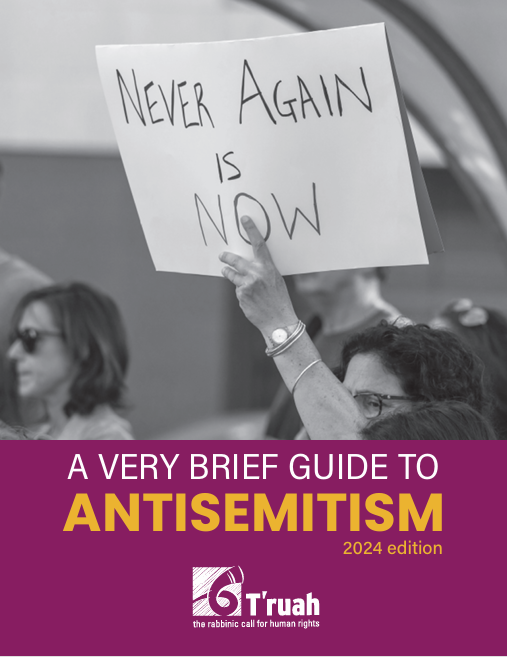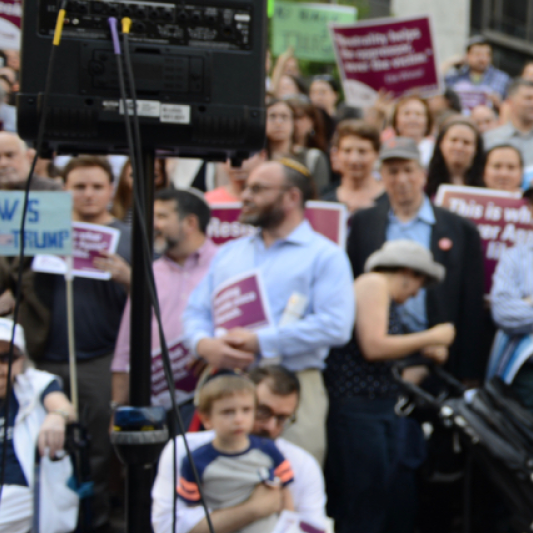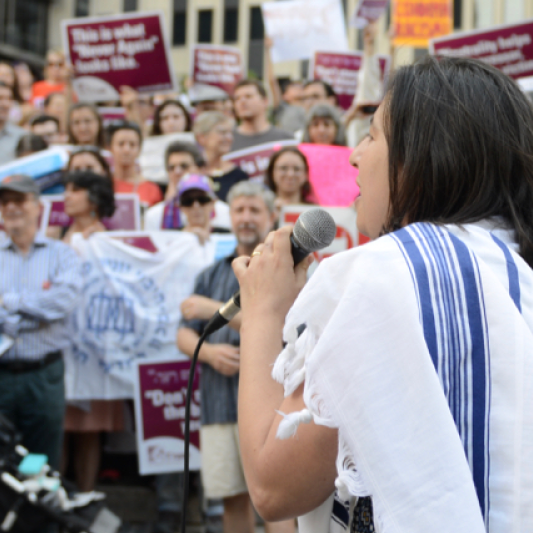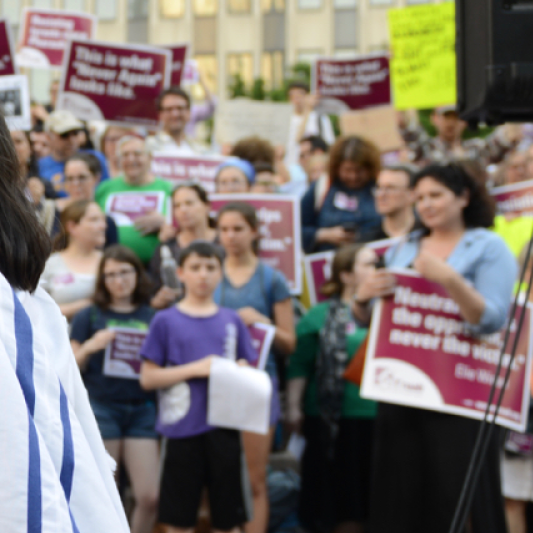T’ruah: The Rabbinic Call for Human Rights
T’ruah brings the Torah’s ideals of human dignity, equality, and justice to life by empowering rabbis and cantors to be moral voices and to lead Jewish communities in advancing democracy and human rights for all people in the United States, Israel, and the occupied Palestinian territories.
Cry aloud; do not be silent. Lift up your voice like a shofar.
— Isaiah 58:1
Take action

Tell Congress: No Troops in our Streets!
President Trump is escalating military operations in our cities: Los Angeles, D.C., Chicago, Portland, and more. These moves are a rampant abuse of power. Take action today: Tell Congress to reject any attempt to use military troops against civilians.Featured
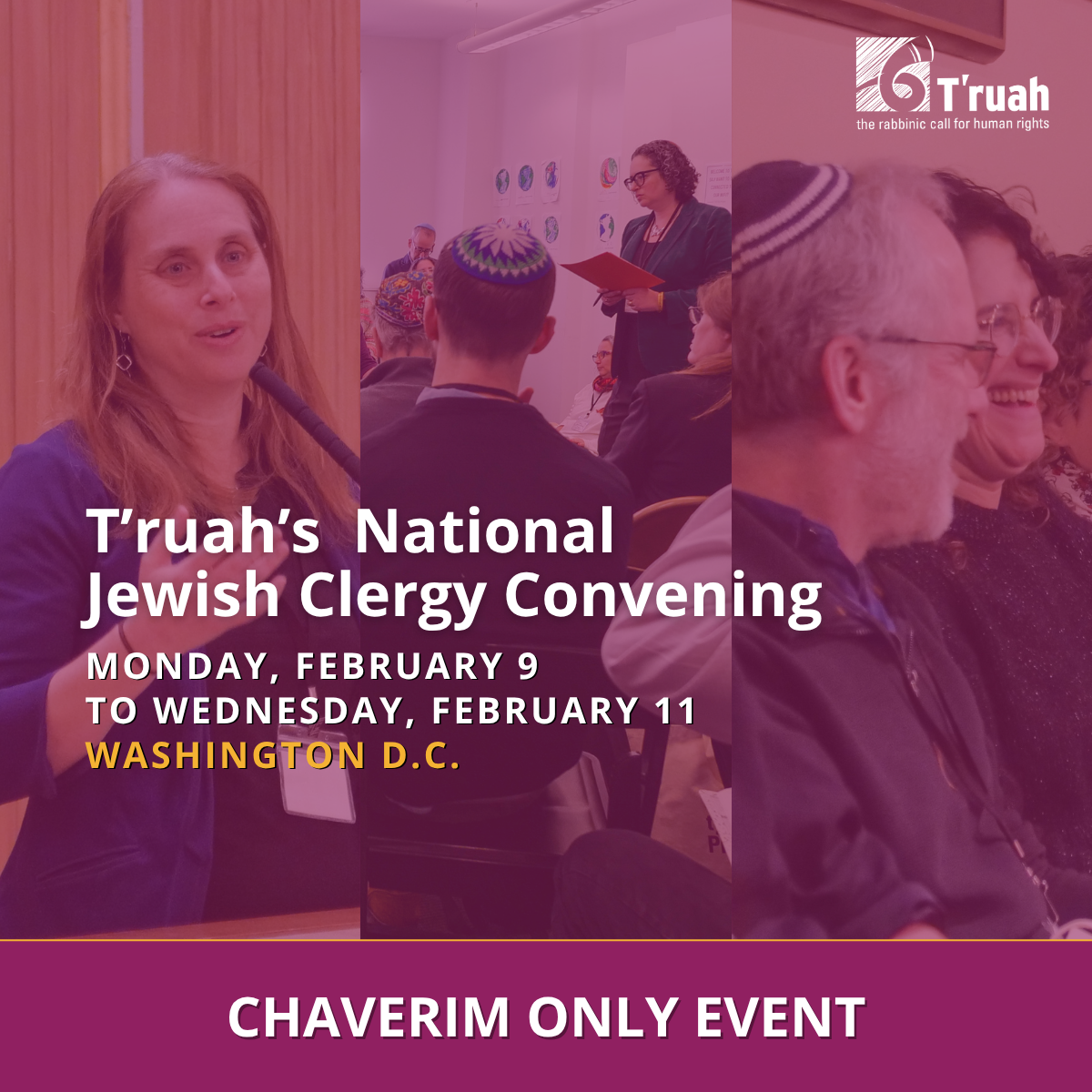
[Clergy Only] T’ruah’s National Jewish Clergy Convening
Over the course of three transformative days, members of our chaverim network will come together from across the country.
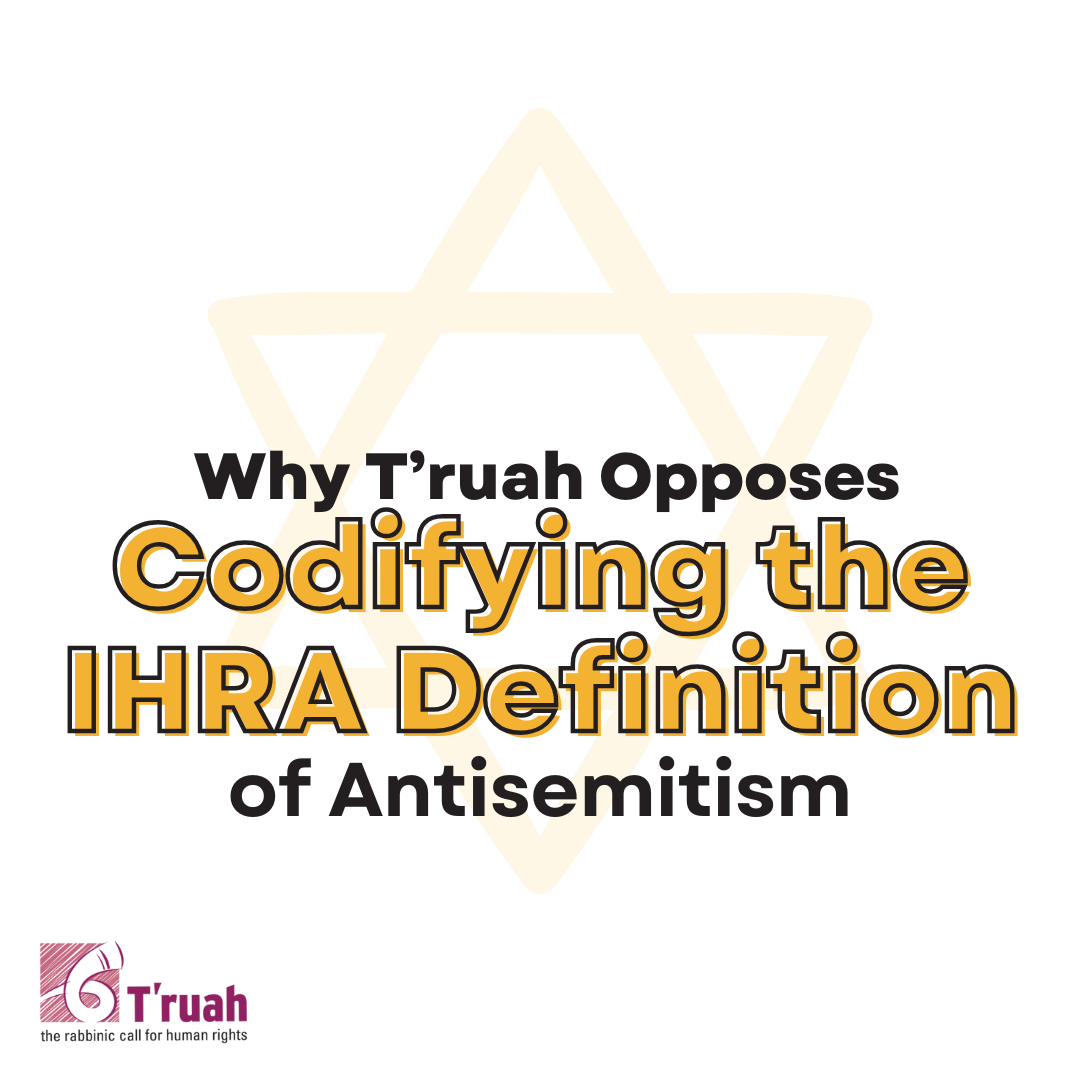
Why T’ruah Opposes Codifying the IHRA Definition of Antisemitism
T’ruah is committed to fighting antisemitism and to ensuring the safety, wellbeing, and vibrancy of the Jewish people. It is because of this commitment that we oppose any effort to codify definitions of antisemitism into policy or law, including the International Holocaust Remembrance Alliance (IHRA)’s definition of antisemitism.
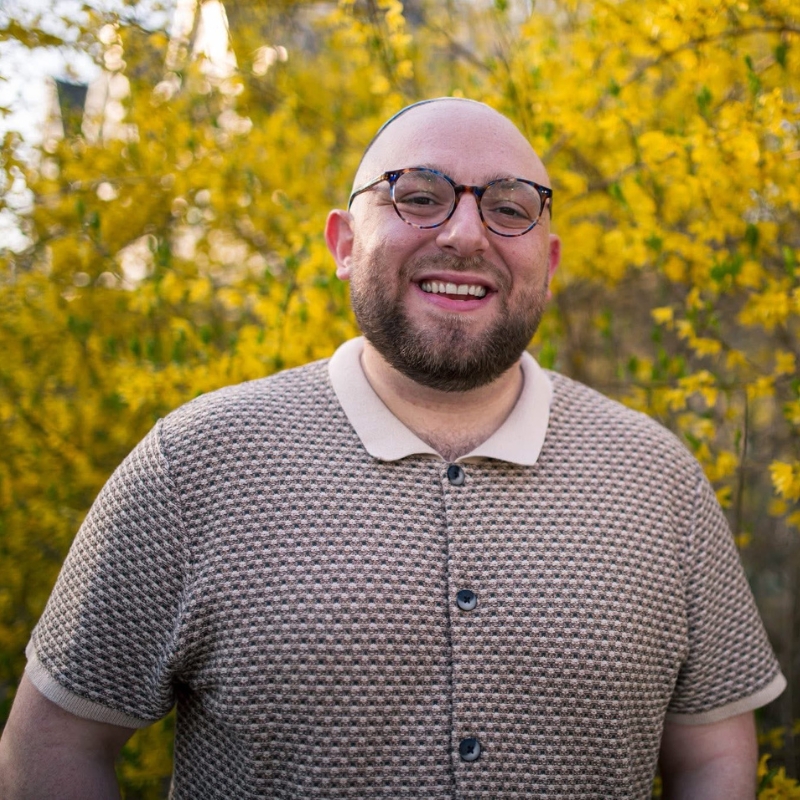
(M)oral Torah
Bo: What Brings Light?
by Rabbi Rafi Ellenson |Bo
